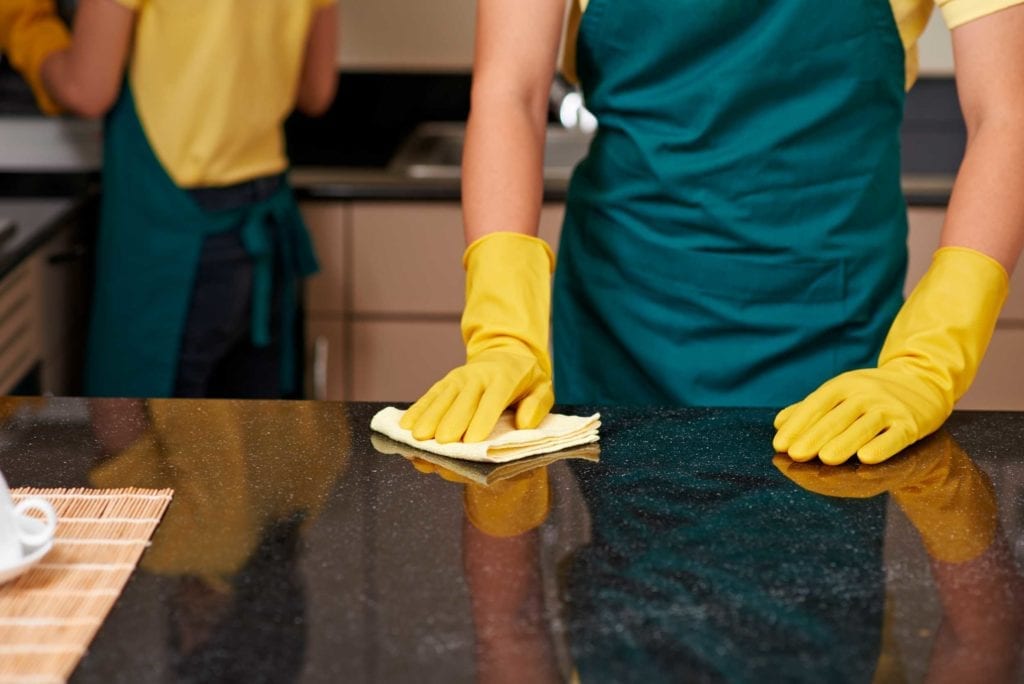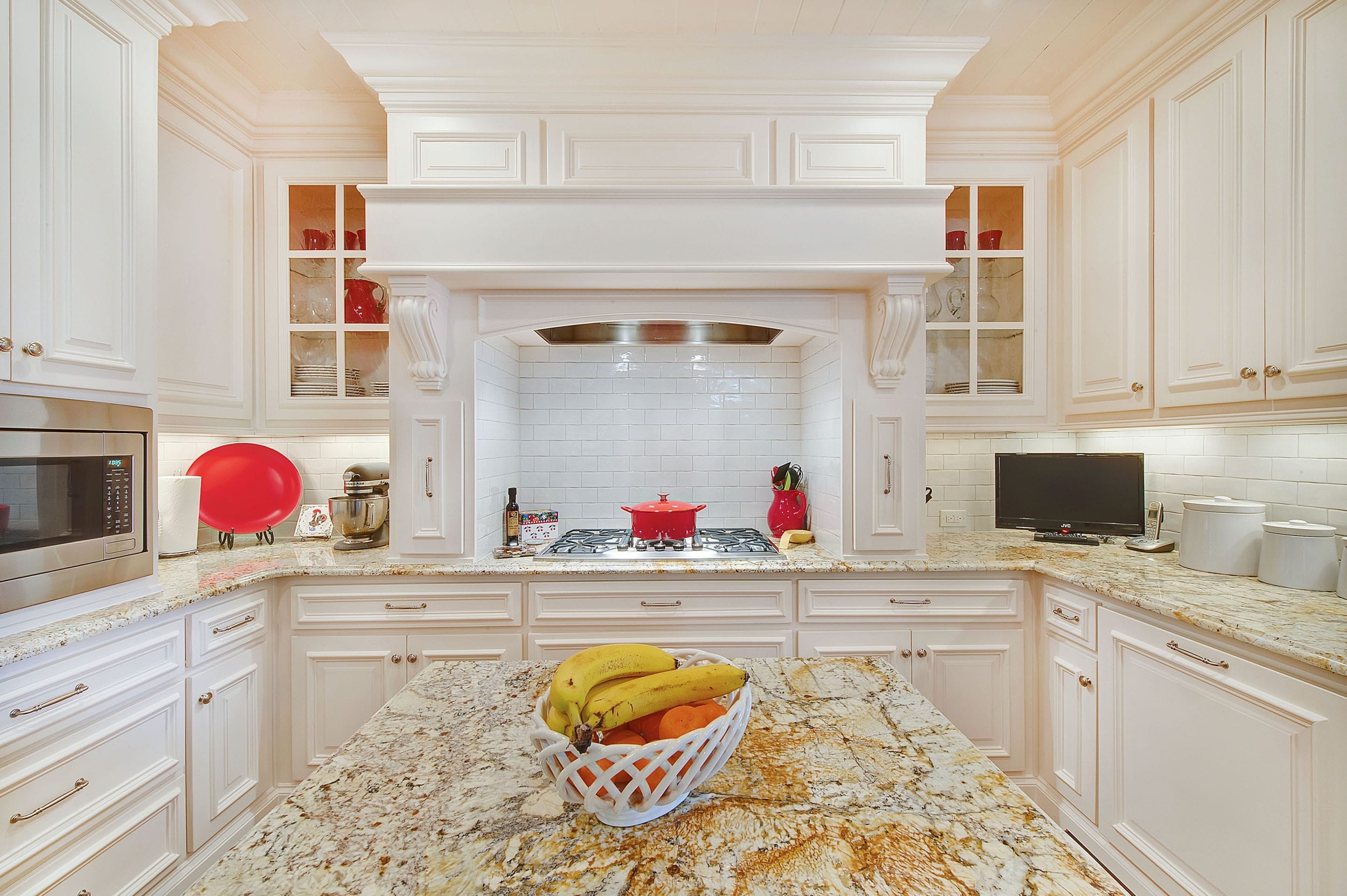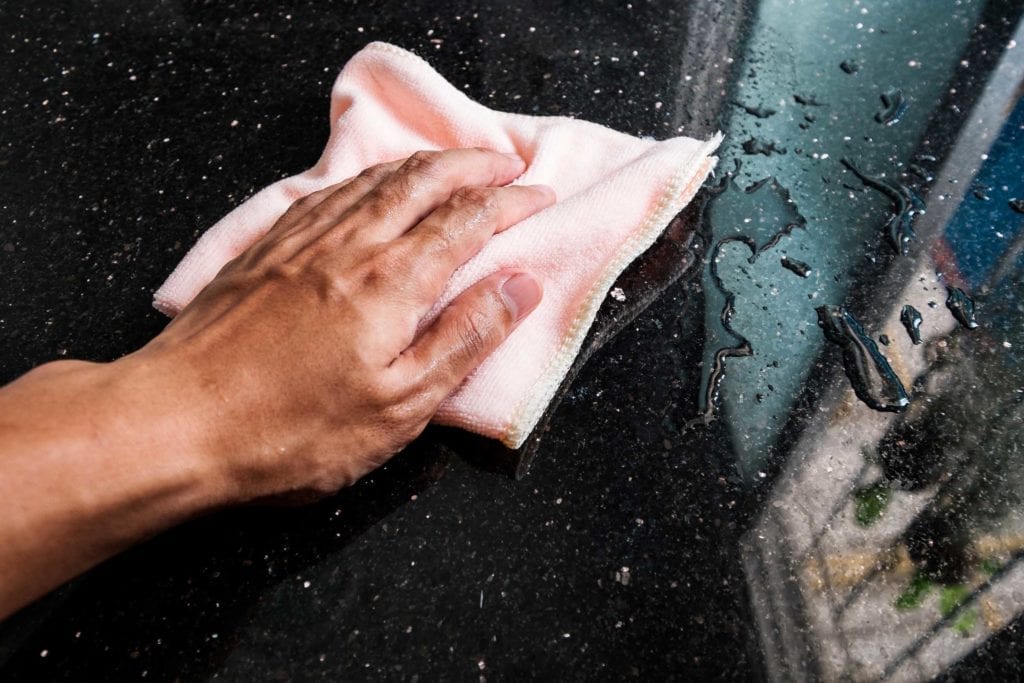Care and cleaning of natural stone
Natural stone is an investment that will give you untold years of beautiful service. Simple maintenance will preserve your stone’s beauty for generations to come.
Use Coasters
Use coasters under all glasses, particularly those containing alcohol or citrus juices. Many common foods and drinks contain acids that can etch or dull the surface of stone. Best practices include not placing hot items directly on the stone surface. Use trivets or mats under hot dishes and placemats under china, ceramics, silver or other objects that can scratch the surface.

Cleaning Proceedure
The most damage to natural stone is caused by sand, dirt and grit due to their abrasiveness. Likewise, do not use scouring powders or creams since they often contain agrasives that may scratch your stone.
In the bath or shower, soap scum can be minized by using a squeegee after each use. To remove soap scum, use a non-acidic soap scum remover or a solution of ammonia and water (about 1/2 cup ammonia to a gallon of water). Frequent or over-use of ammonia solution may eventually dull the surface of the stone.
Vanity tops may need to have a penetrating sealer applied. Check with us for recommendations. A good quality marble wax or a non-yellowing automobile paste wax can be applied to minimize water spotting.
In food preparation areas, the stone may need to have a penetrating sealer aplied. Again, check with us for recommendations. If a sealer is applied, be sure that it is non-toxic and safe to use on food preparation surfaces. If there is a question, check with the sealer manufacturer.
Caring for naural stone is easy to do. Warm water, mild dishwashing liquid, and a soft clean cloth are generally all you need to maintain most natural stone surfaces. Should a stain occur, it can usually be removed using a poultice which we can tell you about.
In outdoor pool, patio or hot tub areas, flush with clear water and use mild bleach solution to remove algae or moss.

Composition
Natural stone can be classified into two general categories according to its composition: siliceous stone or calcareous stone. Your stone’s composition determines which cleaning methods to use.
Siliceous stone includes granite, slate, sandstone, quartzite, brownstone and bluestone.
Calcareous stone is composed mainly of calcium carbonate. It is sensitive to acidic cleaning products and frequently requires different cleaning procedures than siliceous stone. Types of calcareous stone include marble, travertine, limestone an onyx. What works on silicous stone may damage a calcareous surface.
Quick tips
More tips for preserving your natural stone’s beauty:
- Dust natural stone surfaces regularly and protect floor surfaces with non-slip mats or area rugs.
- Blot up spills immediately
- Protect countertop surfaces with coasters, trivets, or placemats.
- Don’t use vinegar, lemon juice or other cleaners containing acids on marble or limestone.
- Don’t use abrasive cleaners on polished natural stone surfaces.

Showroom
12,000 sq ft showroom (MAP) a design laboratory where you can cement your architectural ideas
Testimonials
Hear from our clients on how we helped bring their vision to life.
For a Free Estimate
Jubilee Company fabricates and installs beautiful quartzite countertops in DFW. We stock, mill, and install custom all varieties of natural stone kitchen countertops. If you’re remodeling, renovating, or building a custom home we offer one of the largest selections of on-site slab inventories for DFW residents with hundreds of slabs in more than 70 varieties of natural and engineered stone to choose from. Our fabricator-direct advantage includes installation by highly-skilled professionals.
